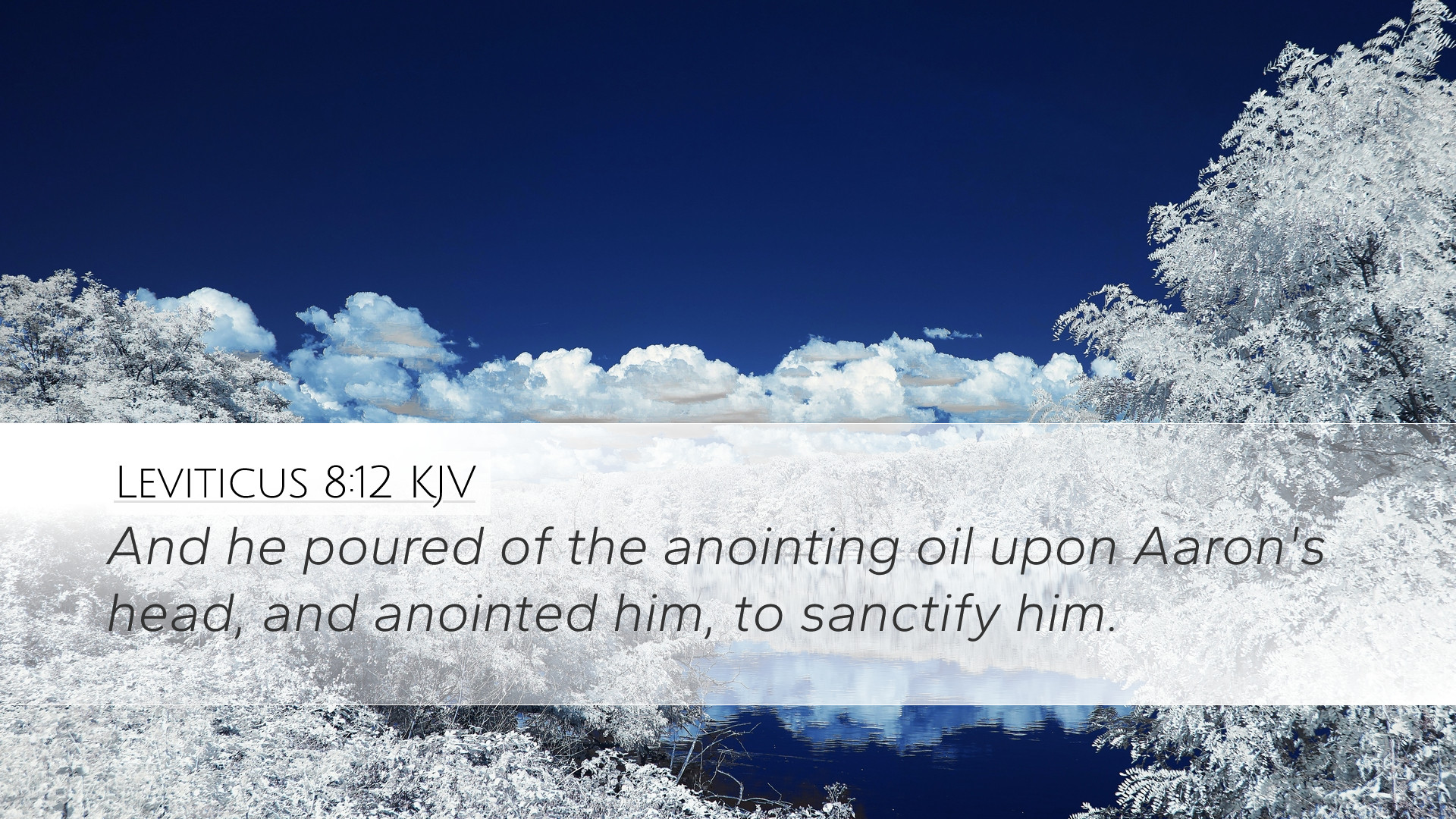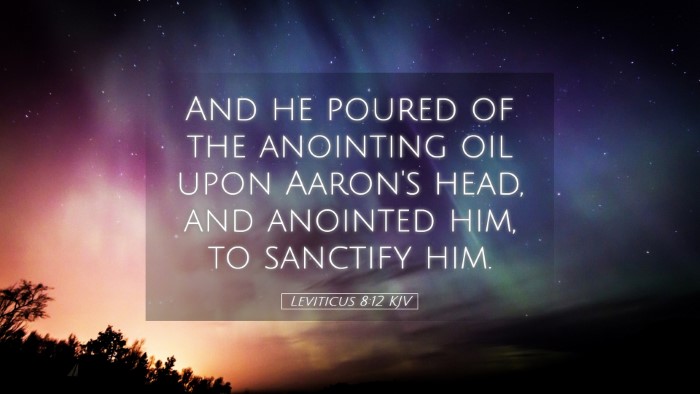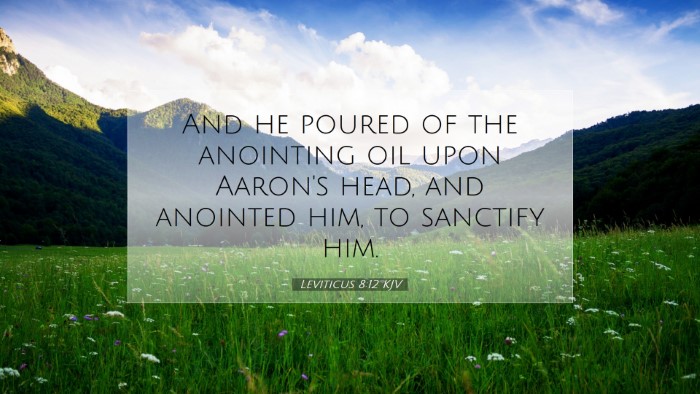Commentary on Leviticus 8:12
Verse Text: "And he poured of the anointing oil upon Aaron's head, and anointed him, to sanctify him."
Introduction
Leviticus 8:12 captures a profound moment in the establishment of priestly authority and the sanctification process within Israelite worship. This verse marks the anointing of Aaron, the first high priest, and serves as an introduction to the priesthood's sacred responsibilities. Delving into commentaries by Matthew Henry, Albert Barnes, and Adam Clarke, we can glean insights that illuminate the symbolism and theological significance of this passage.
Contextual Background
The background of this verse is found in the larger narrative of the book of Leviticus, which focuses on the holiness of God and the means by which His people can approach Him. The anointing of Aaron signifies a divine commission, highlighting the gravity and importance of the priest's role in mediating between God and the people.
Analysis of Key Elements
Anointing Oil
The anointing oil mentioned in this verse is not merely a physical substance but represents the presence of the Holy Spirit and God's empowering grace. Each component of the anointing oil was sacred, illustrating its dual role in purification and the setting apart of individuals for divine service.
-
Spiritual Significance: Anointing is indicative of God's selection and blessing; it signifies that the anointed is equipped for the tasks ahead.
-
Symbol of Authority: The act of anointing confers authority, reflecting God's approval of the individual’s leadership within the community of faith.
Aaron's Head
The act of pouring oil upon Aaron's head is significant. In biblical times, the head often symbolized leadership and authority. This act not only sanctifies Aaron but also symbolizes the flow of God’s blessing and spirit, equipping him for the high priestly duties mandated by God.
Theological Insights
Sanctification Process
The sanctification of Aaron marks the beginning of a holy lineage. Through this anointing, Aaron is set apart for divine service, which illustrates God’s initiative in human affairs and His desire for a relationship with His people.
-
Divine Initiation: The process underscores that God calls and equips individuals for His purposes. As Clarke notes, this highlights the grace of God in sanctifying and empowering His servants.
-
Community Implications: This moment is not just personal; it has implications for the entire community of Israel. Aaron’s role as high priest facilitates the people’s relationship with God, embodying the concept of representation within spiritual leadership.
Contrast with Other Biblical Figures
Matthew Henry draws a parallel between Aaron’s anointing and the anointings of other significant biblical figures, such as David. Like David, who was anointed by Samuel, Aaron's anointing carries a sense of continuity in God’s redemptive plan as it prepares the way for greater, ultimately fulfilled presentations of priesthood and kingship in Christ.
Practical Applications
For Pastoral Leadership
This passage serves as a reminder for pastors and church leaders of the importance of their calling and the need for continual reliance on God’s grace and anointing.
-
Leadership Responsibility: Leaders are called to serve with humility and integrity, reflecting the sanctifying work of God in their lives.
-
Empowerment by the Spirit: Just as Aaron required the anointing for his role, current leaders must seek the Holy Spirit’s guidance and empowerment in their ministry.
For Theologians and Scholars
The theological implications of this passage deepen our understanding of the relationship between the Old and New Testament priesthoods. Understanding Aaron's anointing provides insight into the nature of Christ’s priesthood, as discussed thoroughly in the book of Hebrews.
-
Christ’s Fulfillment: Jesus, as the ultimate High Priest, fulfills and transcends the Old Testament priesthood. The anointing of Aaron points to the greater anointing of Christ, who baptizes with the Holy Spirit.
-
Covenant Community: The anointing signifies God's ongoing work in establishing a covenant community, which is echoed in the New Testament Church.
Conclusion
Leviticus 8:12 encapsulates profound truths about divine calling, empowerment, and sanctification. The act of anointing Aaron not only establishes him as a leader but also symbolizes God's unfolding redemptive plan through the sacrificial system and priesthood. For pastors, students, theologians, and Bible scholars, this verse is a poignant reminder of God's faithfulness in equipping and empowering those He has called to serve in different capacities within His Kingdom. The rich insights derived from public domain commentaries enhance our understanding of this pivotal moment in biblical history and its ongoing relevance to faith and ministry today.


